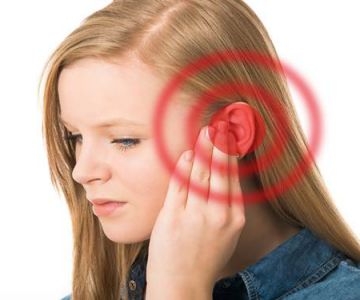
Description
What is Tinnitus?
Also known as head noises, it is the perception of sound without an external source being present.
Tinnitus may be an intermittent or continuous sound in one or both ears. Its pitch can go from a low roar to a high squeal or whine or it can have many sounds. Persistent tinnitus is tinnitus that lasts more than six months. Prior to any treatment, it is important to undergo a thorough examination and evaluation by your otolaryngologist (ENT doctor) and audiologist. An essential part of the treatment will be your understanding of tinnitus and its causes.
What causes Tinnitus?
Tinnitus is not a disease in itself but a common symptom, and because it involves the perception of sound or sounds, it is commonly associated with the hearing system. In fact, various parts of the hearing system, including the inner ear, are often responsible for this symptom. At times, it is relatively easy to associate the symptom of tinnitus with specific problems affecting the hearing system; at other times, the connection is less clear.
Most tinnitus is primary tinnitus, where no cause can be identified aside from hearing loss. Secondary tinnitus is associated with a specific underlying cause that may be treatable. Your doctor will help you distinguish whether your tinnitus is primary or secondary.
What tests will be needed?
When you are evaluated for tinnitus, the first thing the doctor will do is obtain a complete history, investigating potential causative factors, and perform a thorough, targeted physical examination. If the tinnitus is one-sided (unilateral), associated with hearing loss, or persistent, an audiogram (hearing test) should be obtained early in the evaluation. You may opt for an audiogram in any case. There is no need for radiologic testing (X-rays, CT scans or MRI scans) unless your tinnitus is unilateral, pulsatile, or associated with asymmetric hearing loss or neurological abnormalities. Your doctor will try to determine how bothersome your tinnitus is, by asking certain questions or having you complete a self-assessment questionnaire.
How is Tinnitus treated?
Although there is no one ‘cure’ for tinnitus, there are several options available that can help patients with tinnitus. If you are in the ‘new onset’ period of tinnitus (less than 6 months), you can be reassured that, for many, the natural course of tinnitus is to improve over time and most people do not go on to have persistent, bothersome tinnitus.
If the otolaryngologist finds a specific cause for your tinnitus, he or she may be able to offer specific treatment to eliminate the noise. This may include removal of wax or hair from the ear canal, treatment of middle ear fluid, treatment of arthritis in the jaw joint, etc.
Why is my Tinnitus loud at night?
Tinnitus is a sound that is ‘masked’ by external sounds such as office or traffic noise, TV or radio, etc. It is also not perceived when the brain is busy elsewhere – such as at work. At night, when external sounds are minimal and the brain is not focused on something else, tinnitus often sounds much louder and becomes more bothersome. In general, use of a sound generator at night, is very helpful in decreasing the disturbance of tinnitus. If tinnitus is interfering with sleep, you should inform your doctor.
Tips to lessen the impact of Tinnitus
- Avoid exposure to loud sounds and noises
- Get your blood pressure checked. If it is high, get your doctor’s help to control it
- Exercise daily to improve your circulation
- Get adequate rest and avoid fatigue
- Use physical (sound machine) and mental techniques to push the perception of tinnitus to the background; the more you think about the tinnitus, the louder it will seem. If you cannot do this on your own, seek help as outlined above.

